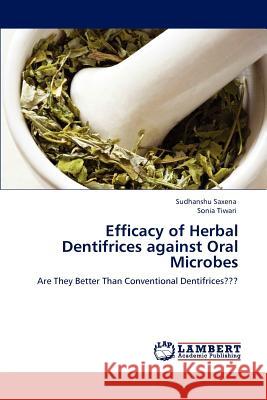Efficacy of Herbal Dentifrices against Oral Microbes » książka
Efficacy of Herbal Dentifrices against Oral Microbes
ISBN-13: 9783848484270 / Angielski / Miękka / 2012 / 252 str.
Self performed mechanical plaque removal is an unquestioned method of maintaining good oral health. In an effort to improve the efficacy of mechanical tooth cleaning procedures, antimicrobial agents have been added to dentifrices. With the growing field of unconventional medicine, dentifrices based on plant extracts are available in the market. Herbal products are usually considered safe by the consumers. Many herbal dentifrices claim to have antimicrobial properties. But there is little or no research to prove or refute the efficacy of dentifrices containing herbal components, in contrast with an overabundance of such research for conventional dentifrices. Also, it is generally agreed that with the omission of fluoride from most herbal dentifrices, these dentifrices usually relinquish dental caries preventive benefits. Hence, with the increase attractiveness of herbal dentifrices dental professionals are not in a position to provide information to their patients and others about the efficacy of these products. This in vitro experimental research was conducted to evaluate and compare the efficacy of commercially available herbal and conventional dentifrices against oral microbes.











